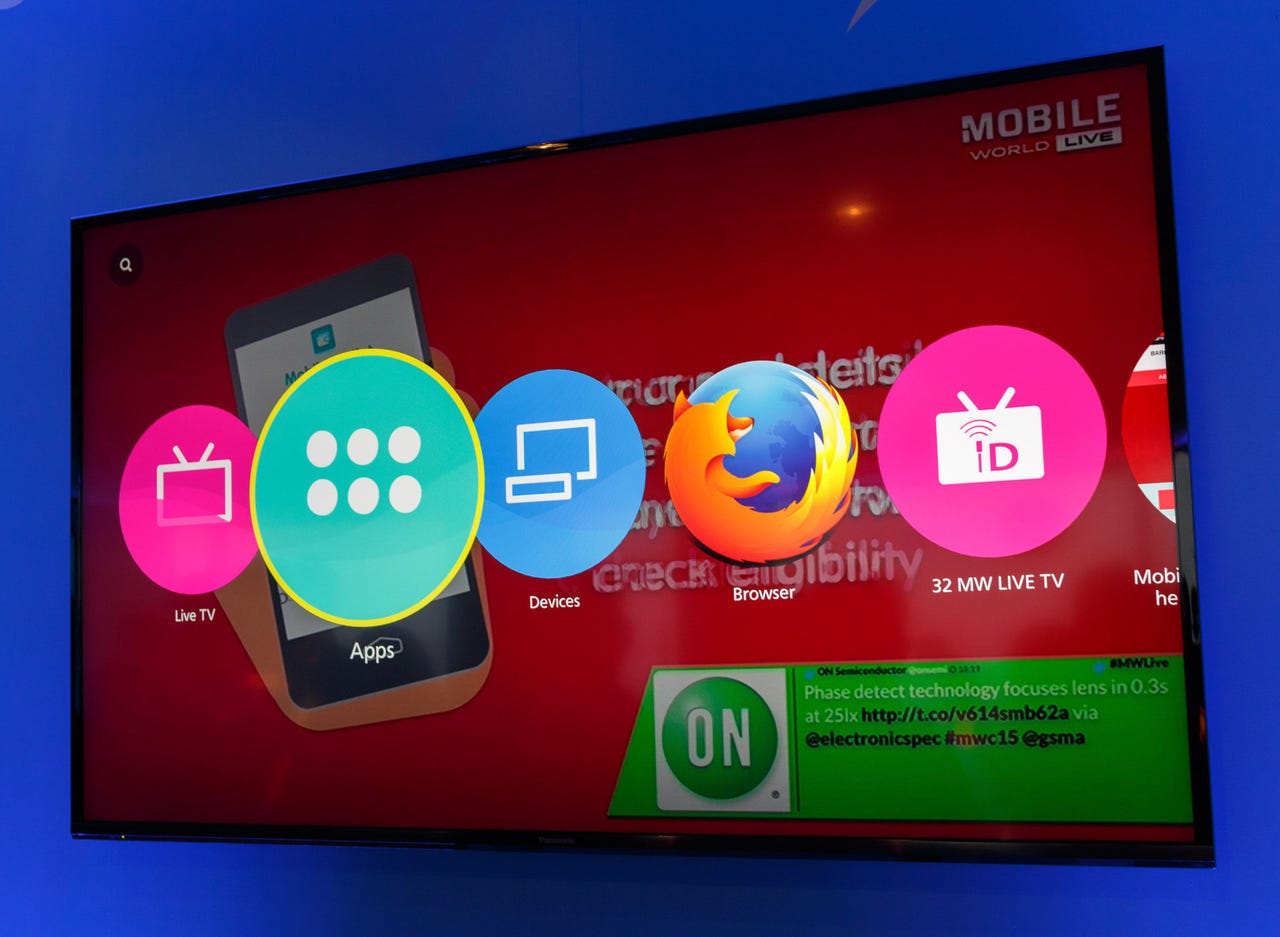Firefox OS is dead: Mozilla kills off open source IoT project with 50 layoffs

Mozilla had latterly focused on Firefox OS for Internet of Things devices, which produced a partnership with Panasonic for its 4K smart TV.
Mozilla has laid off the remaining 50 members of its connected devices team behind Firefox OS and other projects beyond the desktop browser.
"We have shifted our internal approach to the internet-of-things opportunity to step back from a focus on launching and scaling commercial products to one focused on research and advanced development, dissolving our connected devices initiative and incorporating our internet-of-things explorations into an increased focus on emerging technologies," Mozilla said in a statement to ZDNet sister site CNET.
Ari Jaaksi, the senior vice president in charge of connected devices, and Bertrand Neveux, director of the group's software, have also left.
Mozilla's connected devices team inherited Firefox OS technologies after Mozilla abandoned its bid to challenge Android with a platform for open web apps on low-end smartphones. Mozilla launched Firefox OS in 2013 and struck several device partnerships with carriers for emerging markets.
However, like Microsoft and BlackBerry, Firefox OS failed to woo enough users and developers from Android.
By December 2015, Mozilla had given up on its smartphone ambitions to focus on Firefox OS for Internet of Things devices, which produced a partnership with Panasonic for its 4K smart TV. However, last summer it handed off maintenance to commercial partners.
While some connected device projects will be shuttered, such as a crowdsourced platform to monitor air quality, others will continue with unspecified longer-term goals, according to CNET.
Ongoing projects include Vaani, a privacy-focused take on Amazon Alexa, and VoiceBank, a project to gather enough speech samples to support training of AI-powered voice recognition. Additionally, Mozilla's DeepSpeech AI continues under the emerging technologies group.
Despite Mozilla's struggles to move beyond the desktop browser, which is now overshadowed by Chrome, and low adoption of its mobile browser, the organization saw record revenues in 2015.
After ending its global search deal with Google in 2014 and striking regional partnerships with Yahoo, Yandex and Baidu for their respective home markets, Mozilla earned $421m in 2015.
As a non-profit, it's using those funds to campaign against numerous threats to the open internet outlined in its recent Internet Health Report, which covers issues ranging from market dominance by Apple, Amazon and Google, net neutrality, encryption, cyber attacks, and bad government policies.
Read more on Mozilla
- Ex top Mozilla dev to Windows users: Ditch all antivirus except Microsoft's Defender
- Mozilla Firefox 51 warns you when visiting insecure data-grabbing websites
- Mozilla: The internet is unhealthy and urgently needs your help
- Faster Firefox? Mozilla's Quantum shoots for quicker page loads, smoother scrolling
- Firefox zero-day: Mozilla, Tor issue critical patches to block active attacks
